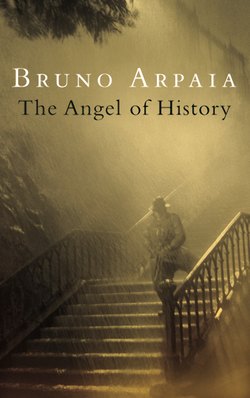Читать книгу The Angel Of History - Bruno Arpaia - Страница 10
На сайте Литреса книга снята с продажи.
ОглавлениеChapter Three
As Benjamin tried to get some sleep in the train for Paris, he watched the grey water of the Mosa slide past. The engine whispered through Reims; he could see the spires of the cathedral beyond the long stretch of buildings. Everything he left behind churned in his mind; his memories all seemed to be trying to squeeze through a tiny opening, as if the blackboard of his past was already full. It was March 18, 1933 – six weeks before Marshal von Hindenburg named Hitler chancellor of the Reich. Though for months already the people Benjamin knew no longer slept in their own beds and spent their days out at the cinema or in department stores. He hardly ever put his nose out the front door. He felt safe in his shell, while the other Berlin intellectuals gathered at the Romanisches Café. ‘Sitting there,’ Hans Sahl would write many years later, ‘like animals petrified in the moment, untethered, waiting to be blown away. It was as if they’d lost their identities and were waiting for new ones to come and save them. They scoured over train schedules, hunched over maps, and wrote letters to relatives long since emigrated to America who had made their fortunes it seemed.’ It was a long funeral for Weimar Germany, a timid ritual conducted to the rhythm of the word escape.
But Benjamin wasn’t on the run – at least not yet. He wasn’t well-known enough and his writing was too abstruse and esoteric to attract the attention of the Nazi censors or position him as an enemy of the state. And yet his life in Germany ended on January 30, 1933, with an ‘almost mathematical simultaneity’. Within just a few days’ time all his manuscripts were returned to him, his contacts disappeared, negotiations lapsed, all the letters he wrote asking for explanations were met with silence. Time was short. Benjamin never appeared to lose his calm during those weeks, even if what had befallen his friends should have filled him with terror. On January 20, the SA raided the houses of Horkheimer and Pollack. The night of February 27, Bloch, Brecht, Bentano, Dracauer and Speyer disappeared – all of them went abroad to escape. Ernst Schoen and Fritz Fränkel were captured and tortured.
Those last days he spent in Berlin were a constant attempt to distance himself from this inevitable end that had only just begun. He would be leaving his language and leaving himself. He crept on tiptoe while history was moving in on him like a locomotive. History begged him to follow his friend Gretel’s advice and run. There was nowhere else to go but Paris. Over the last twenty years, Benjamin had spent many months there. He spoke the language fluently; he had translated Proust and Baudelaire into German; he knew French literature better than most; and he’d been working on a book, Passagen-Werk, about Paris. Where else would he go? Although this time around he wouldn’t be making another trip to a city that he thought of, perhaps even more than Berlin, as his own. He would never be able to live there again as he had in 1913 – his first visit – when he’d experienced it ‘intensely, the way only children know how to live’.
And yet, he had to go. Benjamin didn’t believe that the Nazi spectre would eventually pass; he knew it would last. Nevertheless, all those weeks he spent shut up in his studio, he’d been waiting for something, ruminating on his doubts and apprehensions, until, at last, all of the indecision of the past years and months seemed to evaporate in a moment. He put his affairs in order, sublet the apartment for a year, and left quickly for France. He brought a couple of suitcases with him, filled with more books, manuscripts and notes than clothing. But he was forced to leave his library behind in Germany – the library that he needed for his work.
Benjamin left alone, because there was no one left who could bring him to the station. He arrived alone, because there was no one at the station to meet him. He stepped down from the train pale and exhausted. Sighing deeply, he looked out over the gentle rain, just barely liquid, falling over the Paris sky, and picked up his bags.
